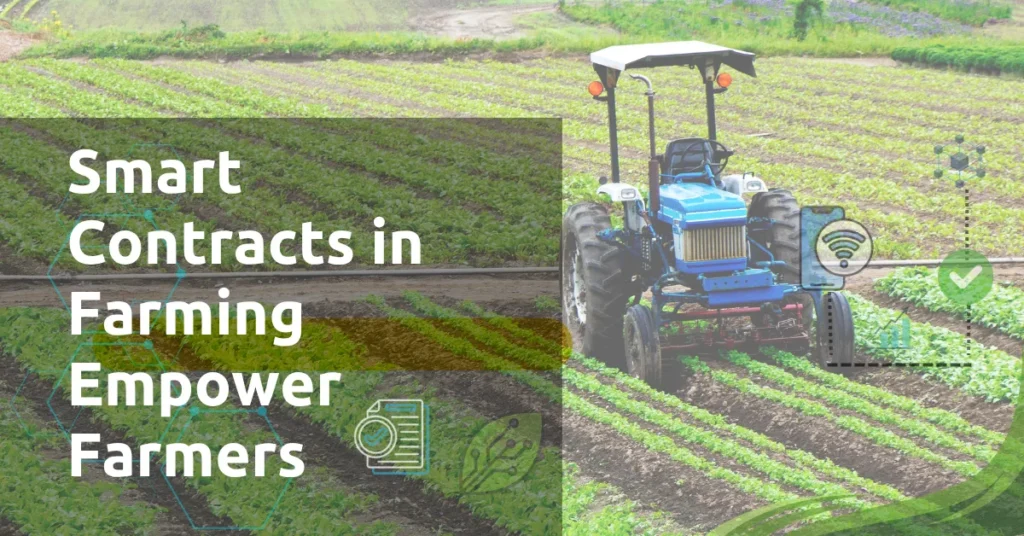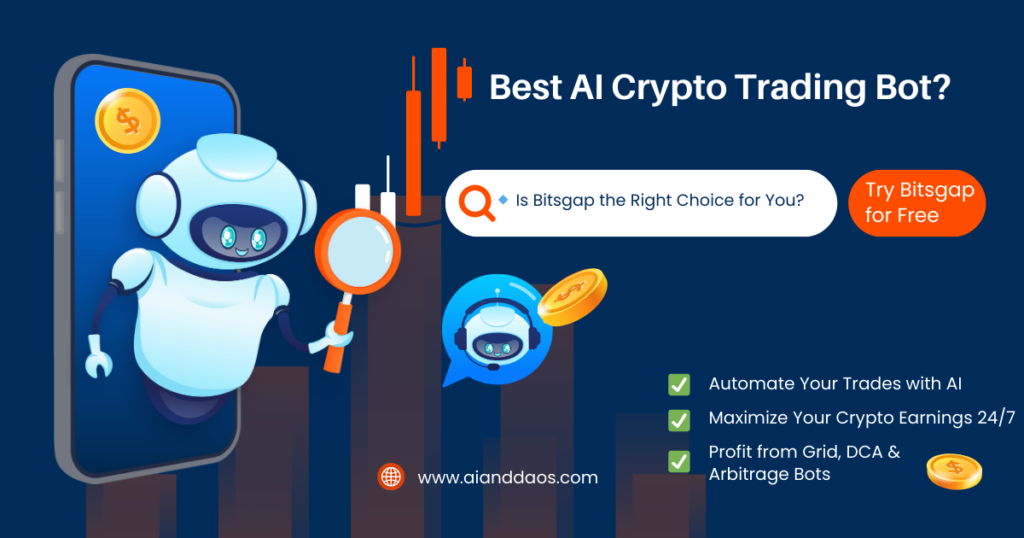What Are Smart Contracts in Farming?
Smart contracts in farming are like digital vending machines. Once the right conditions are met—like crop delivery being confirmed—they automatically release payment to the farmer. There’s no middleman, no paperwork, and no waiting around. For example, if a farmer sends 100 kg of wheat, the contract tracks delivery through GPS or a QR scan and instantly pays them.
This helps build trust, saves time, and cuts out fraud. Farmers get paid fairly and quickly, without chasing anyone. While the tech needs good internet and data systems—which can be tricky in rural areas—it’s already making a big difference. As more farmers and agri-businesses adopt it, smart contracts are helping create a farming system that’s faster, fairer, and more transparent.
How Blockchain Technology in Agriculture Works
How Smart Contracts Work in Agriculture
Think of a farmer named Raj in rural India. He grows organic wheat and finds a buyer in Dubai who’s willing to pay a premium—but only if the wheat arrives on time and in good condition. In the old system, Raj might rely on middlemen, get underpaid, or face delays in payment after shipping his crop.
But now, with smart contracts in farming, things are different. The deal is written in code—simple logic like: “If delivery is confirmed, release payment.” No arguing, no chasing people down. The moment the wheat arrives and is scanned through a QR code, Raj automatically gets his money. No delay. No need for trust. Just clear, automatic action.
It’s like a vending machine. You put in what’s required, and if it matches the rules, you get what’s promised. That’s the power of blockchain bringing real-world trust and fairness to agriculture.
Real-World Examples of Smart Contracts in Farming
Imagine working hard for months, only to wait weeks—sometimes even longer—just to get paid. That was the everyday reality for cocoa farmers in Ghana. Payments were slow, paperwork got lost, and middlemen often took a bigger cut than the farmers themselves.
Now? A quiet revolution is unfolding.
Thanks to smart contracts in farming, once a farmer delivers cocoa and it’s scanned into the system, payment is released instantly—no phone calls, no chasing agents, no delays. The contract runs on blockchain, making the whole process automatic and tamper-proof.
In India, farmers used to line up for hours to verify their wheat delivery and wait weeks for money. But with pilot blockchain programs, the moment crops are digitally logged, payments hit their accounts. No arguments, no waiting.
It’s not hype—it’s happening. And it’s changing how trust, money, and food move in agriculture.
Benefits of Smart Contracts in Farming
For farmers, every penny and every day counts. With smart contracts in farming, things move faster and more fairly. There’s no need to wait on middlemen who delay payments or take a cut. Instead, when crops are delivered and verified, payment is released instantly.
This not only builds trust but gives farmers quicker access to money they can reinvest in seeds, tools, or family needs. And because everything is tracked on a secure blockchain, there’s no room for tampering—everyone sees the same, unchangeable record.
It’s farming with fewer surprises—and more peace of mind.
What’s Holding Smart Contracts in Farming Back?
While smart contracts in farming sound promising, there are still some bumps in the road. Many farmers—especially in remote areas—aren’t familiar with digital tools, which makes it hard to adopt blockchain-based systems. Even if they’re willing to learn, patchy internet in rural regions can make reliable access a struggle.
On top of that, not all countries have clear laws around using smart contracts in agriculture. Without proper legal backing, it’s tough for farmers to trust or rely on these digital agreements. So while the technology is powerful, real-world adoption still needs support, training, and better infrastructure.
Future of Smart Contracts in Farming
Smart contracts are slowly making their way into everyday farming life. With help from farming apps, cooperatives, and even government programs, it’s becoming easier for small farmers to use them—without needing to be tech experts.
Take this real example from Kenya: a group of maize farmers formed a cooperative to sell their harvest together. Instead of each farmer dealing with buyers on their own, the group used a smart contract to agree on a fair price. Once the maize was delivered and checked, the system automatically paid each farmer—no delays, no middlemen. The cooperative took care of the tech, and everyone got paid fairly and on time.
Looking ahead, smart contracts will likely team up with tools like satellite crop tracking, mobile payments, and AI-powered forecasts. This mix of tech could make farming not just more efficient—but more fair and predictable, too.
As simpler, farmer-friendly platforms roll out, smart contracts could soon become just another part of how we farm.
FAQs – Smart Contracts in Farming Empower Farmers
Q1: What are smart contracts in farming?
Smart contracts in farming are self-executing digital agreements that automatically carry out terms—like releasing payment—once conditions are met, such as confirmed crop delivery.
Q2: How do smart contracts benefit farmers?
They remove middlemen, reduce delays, and ensure fair, instant payments. This helps farmers gain more control, trust, and profit from their work.
Q3: Are smart contracts safe and transparent?
Yes. They’re built on blockchain technology, which ensures all transactions are secure, traceable, and tamper-proof.
Q4: Do farmers need coding skills to use smart contracts?
No. Many platforms simplify smart contracts through mobile apps or cooperative tools, so farmers can use them without tech expertise.
Q5: Can smart contracts help with crop insurance or loans?
Absolutely. Smart contracts can trigger insurance payouts automatically after weather events or help build transparent histories for accessing loans.
Why Smart Contracts Matter in Farming
Smart contracts in farming are changing how deals are made—making payments faster, cutting out middlemen, and building trust between farmers and buyers. These digital tools bring fairness and transparency to the field, especially for small farmers.
As access to simple apps and co-op support grows, smart contracts in farming could become as common as tractors—quietly powering a more secure, efficient food system.


